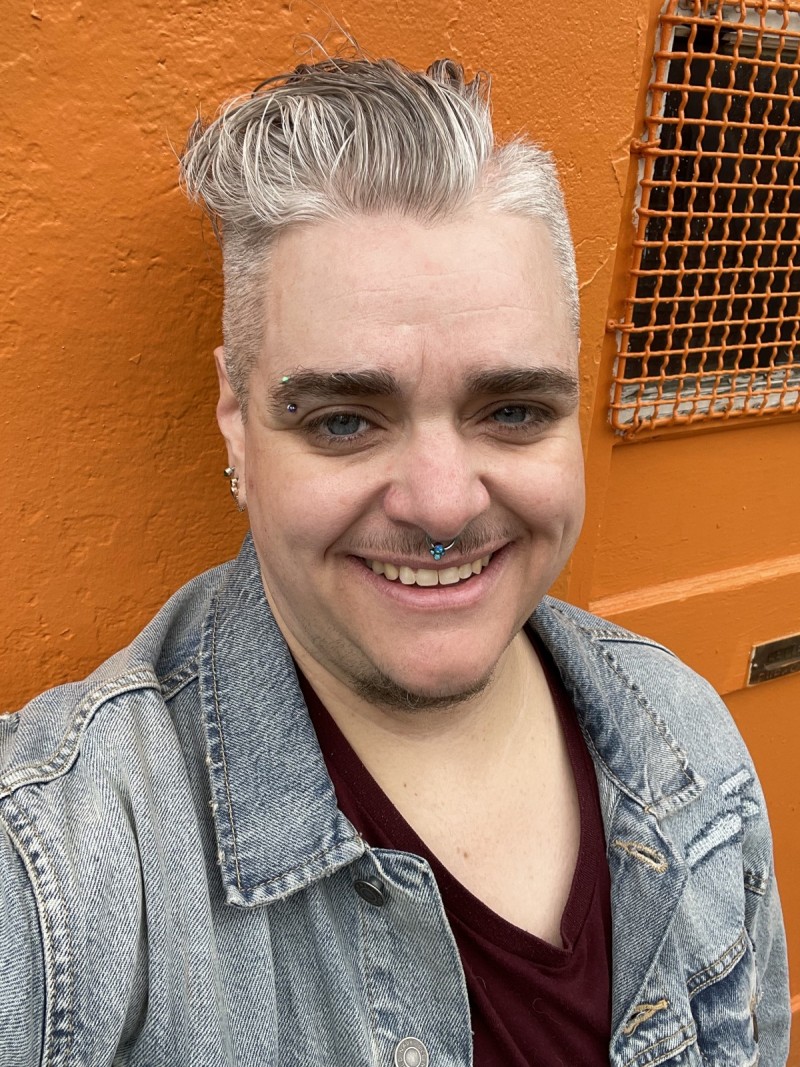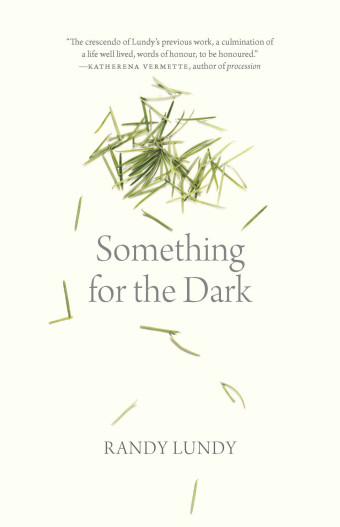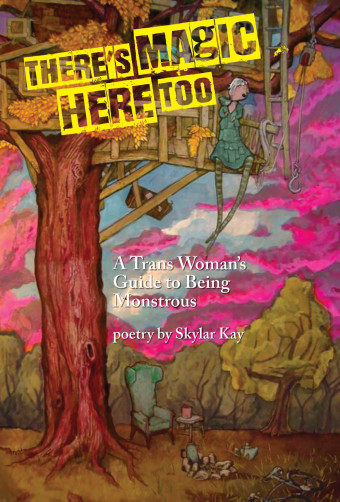Maritime poet Lucas Crawford’s latest poetry collection, Muster Points, has its origins in the COVID-19 pandemic. In March 2020, Crawford arrived at the Banff Centre for the Arts, ready to mentor writers at a retreat.

- Muster Points
- Lucas Crawford
- University of Calgary Press
- $28.99 Hardcover, 80 pages
- ISBN: 978-17-73854-52-6
A week later, the retreat was cancelled and Crawford was in quarantine, and, as the catalogue copy says, “coughing like a good fat asthmatic at high altitude, ending a relationship, not knowing when or how he would get home, or where home would be when he got there.”
By the time Crawford had been tested for COVID-19 and cleared, travel for someone with multiple risk factors for severe outcomes was strongly discouraged.
“I had myself, my coping skills, my laptop, one big suitcase, a cheque for a few thousand dollars for working at the writing retreat, and my friends on the other end of a text or a call,” Crawford says.
After a month in Banff, Crawford found safe havens in Edmonton and Vancouver. He coped with all this change, personally and globally, by writing, connecting with the people he loved, and focusing on what was most important to him.
“I look back on it as an incredible time of clarity; the pressure and urgency of the pandemic and my own odd isolation-on-the-road brought me back to myself with a strength and speed I have seldom experienced,” he says. “Listen, the pandemic is no gift, but I am very grateful for the lucidity it brought to my life at that time.”
Crawford is now settled at the University of Alberta’s Augustana Campus, where he is an associate professor in the Department of Fine Arts and Humanities and is the Canada Research Chair of Transgender Creativity and Mental Health.
Though the initial goal for this book was to give Crawford something to do every day, a clearer purpose soon emerged.

“As both the pandemic and my manuscript stretched on, I found myself in new locations and new relationships in very familiar cities and sometimes familiar dynamics,” Crawford says.
“The goals then grew accordingly to include my personal pandemic-tinted reckoning with various pasts in various places, always with an ear for the unknown that I was then (and in some sense always) inhabiting. In other words, I started asking myself: What are my muster points?”
This question pushed Crawford to explore ideas about queer sex and love through pop music and place.
But the best description of what a poetry book does is sometimes another poem, as in this abecedarian by Crawford:
“Absolute unit of a poetry Book. But I’m Biased, of Course. Cuz I wrote it, Duh. Description: Disabled Dude Eats up words and Edits them Endlessly. Poems about Feast, Famine, Flirtation. Farewell, Fustigation. Fiona Apple. Gaga too. How did I survive Isolation? With Jokes? Also by writing about Kink. Latency. Leather. Leaving. Modernism. (No really, a long queer poem about modernism and Opera.) Others about Peanut butter. Paint colours. Pain. Pizza. Queer stuff? Queer stuff! Rural memories. Strawberries. Star-shaped donuts. The Upside to Verily Weathering a pandemic, via poetry, is licence to be a bit eXtra, even if You already were. You should read some poetry. I mean, hey – it’s better than Zoom.”













